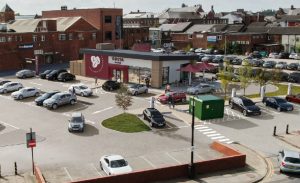Kleinwort Benson: Economic recovery – as good as it gets; slowdown ahead

|
|
THE recession which began in the latter part of 2008, was one of the most savage and widespread recessions in economic history. The collapse in confidence in the global financial system led to a near-paralysis in global trade before co-ordinated government stimulus plans on an astonishing scale in early 2009 rescued the banking systems and replaced non-existent private sector demand with public sector demand. These were effective in turning round confidence and the recession turned into recovery. Looking back at the data, it is clear the Chinese economy had begun to recover in the first quarter of 2009, and the US economy in the third quarter. The infrastructure spending in both economies revived demand for commodities and for labour, pushing up private sector incomes, which in turn gave a boost to private sector consumption. However it is now clear that these emergency measures are waning, and that the response of the private sector in the US has not been sufficient to kickstart growth back onto a sustainable basis. The key problem in the US economy is consumer confidence. The weekly level of new unemployment claims has fallen sharply from last year but this year has got stuck at around 430,000 and has now risen to 500,000, above the peak this indicator made in the 2000-02 recession. So there remain considerable fears in consumers’ minds over job security despite the recovery to date. In addition in previous cycles, the Central Bank’s standard response of cutting interest rates to make mortgages cheaper, so pushing up both house prices and household disposable incomes has meant that consumer confidence tends to pick up early in a recovery. This time round, house prices remain very weak with enormous levels of unsold properties overhanging the market, and banks, which have their own problems, have little desire to make new mortgage loans. Consumer confidence is now falling back, and spending has not been strong so far in 2010. As the government stimulus comes to an end the private sector does not seem to be in a position to keep the economy going. In China, the growth rate exceeded 12% in the first quarter and bank lending was substantially ahead of government targets. This led to a series of tightening measures designed to get growth to return towards its longer term target level of about 8%, which is expected to be achieved by the first quarter of next year. A slowdown of 4% in a year is quite marked and has economic consequences both for China and for those countries who export to China. The UK was one of the last of the Western economies to come out of recession, and certainly the second quarter data out recently was much better than expected. However, there are several unusual factors in the data that made it an especially strong number. First was weather; the first quarter had the “Big Freeze” at the start of the year which held down economic activity, whereas the second quarter had much better than normal weather, which has the effect of lifting spirits and boosting spending. Secondly there was a considerable contribution from construction activity in the Q2 data, which is intuitively odd, and suspiciously there does appear to have been a change in the way that activity is calculated by the statisticians. Thirdly, the first quarter saw a rise in VAT, which again would have depressed spending in that quarter, before the new prices become more established in consumers’ minds. As we approach 2011, consumers and companies will be very aware that not only are governments no longer spending to support demand in their economies, in many cases they will be actively cutting back. In the UK over the last decade the change in government spending probably contributed 1% a year to economic growth- for the life of this parliament the change in government spending is likely to contribute minus 1% a year to economic growth. We’ve had the good news on the economic recovery – from here a slowdown is likely. This note is intended to give an insight into the thought processes that lie behind our investment views and our investment strategy. They do not necessarily reflect the current investment policy of Kleinwort Benson. This note is intended for information purposes only and does not take into account the investment objective, the financial situation, or the individual needs of any particular person. Investors should obtain independent advice based on their own particular circumstances before making investment decisions. SectorsCommentsIf you'd like to leave a comment, please register now for free or login
|








